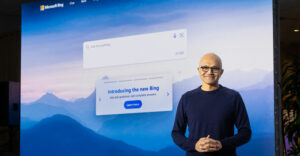
The innovations that many Google users take advantage of — Google News and Google Reader being just two examples — were home brewed in the company’s Google Labs division. On Monday, the search giant pulled back the curtains on that research and development department, giving Google Labs a new outward-looking focus and allowing the public to comment on all that ongoing beta activity.
Google did this while introducing two new search tools: Similar Images and Google News Timeline. The latter development will no doubt get the attention of mainstream journalism companies that have recently become more proactive in challenging news aggregators like Google when it comes to linking to news content.
“In order to keep up with our engineers, we decided it was time to remodel Google Labs to make room for more — you guessed it — innovation!” chirps Michael Cohen of Google Labs on the Official Google Blog.
The makeover, done with Google App Engine, includes an RSS feed and an iGoogle gadget.
“When you visit the site, you can also hear from the innovators themselves and share your thoughts, helping us shape your favorite experiments into future Google products,” says Cohen.
The New Products
Similar Images, one of the new products Google has determined is ready for prime time, allows users to refine their searches for pictures and logos. If you know the image you’re looking for but can’t find the exact words, a link may help you focus in on your goal.
“Using visual similarity, you don’t have to refine the text of your search, instead, you can just click on the link of an image you like,” wrote Chuck Rosenberg of the Similar Images team on the Official Google Blog.
An example offered by Google — a search for “Paris” — lets users focus their search on the famous French city or the infamous blonde socialite.
Google News Timeline is just that: a chronological presentation of items from Google News sources that allows scrolling and zooming along a bar-like graph. The beta offered by Google hints at user choice in the types of souces used: newspapers, magazines and blogs.
“Google News Timeline can present results from lots of different sources, including both recent and archival news, scanned newspapers and magazines, blog posts, and sports scores and media like music and movies,” wrote Andy Hertzfeld of Google News. “You can view multiple sources simultaneously, allowing each source to lend context to the others.”
In what may be a boon to students working on term papers, the timeline can go back decades, depending on the sources used.
The Early Reviews
Many news outlets, already starved for ad revenue in a lousy economy, charge a fee for access to archival stories and front pages. It’s an issue that Google News Timeline may have to refine soon, said Charlene Li, principal analyst at the Altimeter Group.
“Most news sites are trying to monetize their archives,” Li told TechNewsWorld. When it comes to links from aggregators, “what they typically have done is, the first article is not a problem. It’s the second or third article that might be an issue. They all have different rules.”
Though Li found adding sources to the preference list troublesome, she did like the Google News Timeline’s navigation features.
“What’s interesting is not so much the categorizing of the news, but presenting the items in a different way. It’s taking the existing information and putting a new [user interface] on it.”
The revamping of Google Labs shows that the company is staying proactive in the innovation department while it waits for advertising, it’s main source of revenue, to rebound. It also highlights the brainpower harnessed on the Mountain View, Calif., campus.
“The Labs people are basically everyone at Google,” Li said. “Anybody can use their ’20 percent time’ (time spent not working on existing jobs) and create new stuff. I think they realize that innovation is where they are going to be able to grow again. They can wait for the economy, and the ad market will come back. But they can be more aggressive about things and take things into their own hands and develop their own products.”



















































